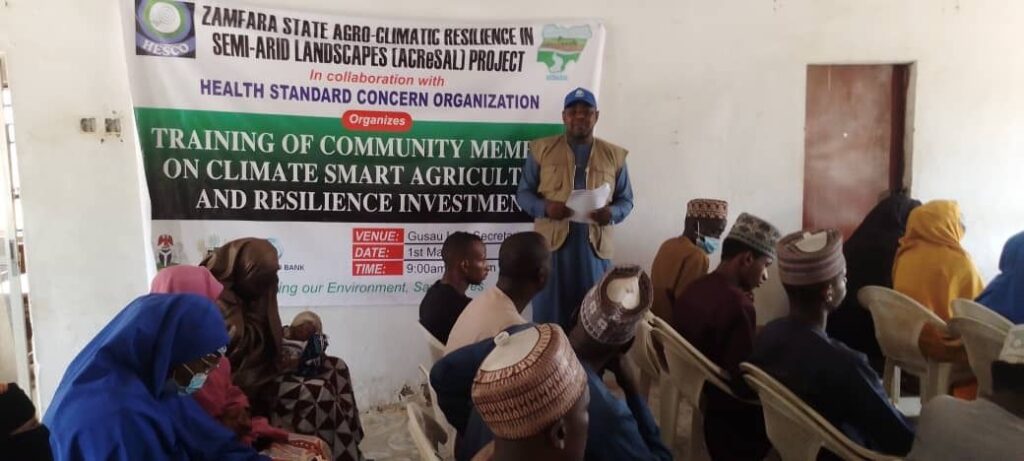In a bid to boost climate resilience and promote sustainable agricultural practices, the Health Standard Concern Organization (HESCO), in collaboration with the Zamfara State Agro-Climatic Resilience in Semi-Arid Landscapes (ACReSAL) project, has successfully trained 200 participants drawn from farmer associations, community interest groups, and local government project implementation committees across three catchment areas in the state.
The training, which took place in Gusau on Thursday, aimed to equip stakeholders with knowledge and practical skills on Climate Smart Agriculture (CSA) and resilience investment strategies amid growing challenges posed by climate change.
Speaking during the event, HESCO’s Social Mobilization Officer, Mansur Iliyasu, emphasized that the workshop was designed to expose farmers and community groups to modern, climate-resilient farming methods that ensure sustainable land use and productivity despite environmental stresses.
“As climate change continues to impact agricultural output, it is imperative that we empower our farmers with tools and techniques that can help them adapt and thrive,” Iliyasu said.
The comprehensive training covered key aspects of CSA, including conservation agriculture, agroforestry, crop diversification, and soil conservation. Participants also received guidance on the detrimental effects of harmful practices such as bush burning.
In a technical paper presentation, Dr. Ahmad Hashim, HESCO Project Officer, outlined several strategies for building resilience in farming systems. These included the adoption of climate-resilient crop and livestock varieties, improved water harvesting and management techniques, and the restoration of soil health.
Dr. Hashim warned about the severe environmental consequences of bush burning, noting that it contributes to biodiversity loss, soil degradation, and elevated greenhouse gas emissions, all of which threaten long-term agricultural sustainability.
“The core objective of this training is to deepen the understanding of climate change among farmers, enhance their adaptive capacity through CSA practices, and promote sustainable landscape management across Zamfara’s watersheds,” Dr. Hashim explained.
He added that through such capacity-building initiatives, the ACReSAL project seeks to enhance food security, improve agricultural productivity, and foster sustainable livelihoods for rural communities in Zamfara State.
The training reflects an ongoing effort to address the ecological challenges faced by semi-arid regions and to implement solutions aligned with Nigeria’s broader climate adaptation and agricultural development goals.















